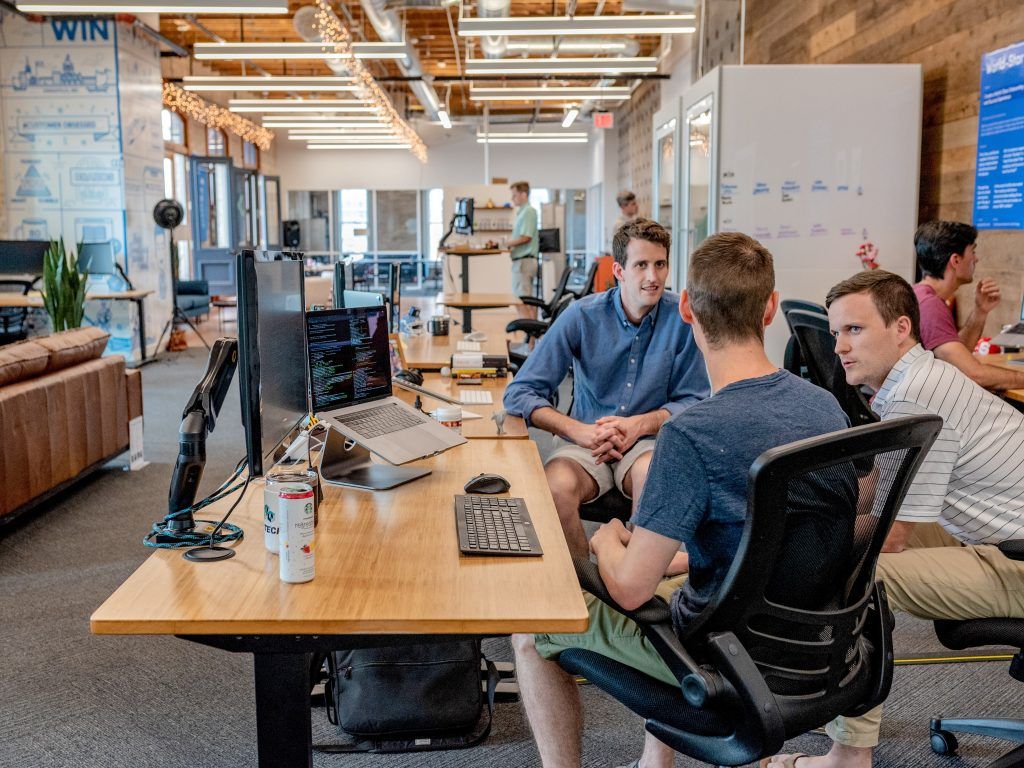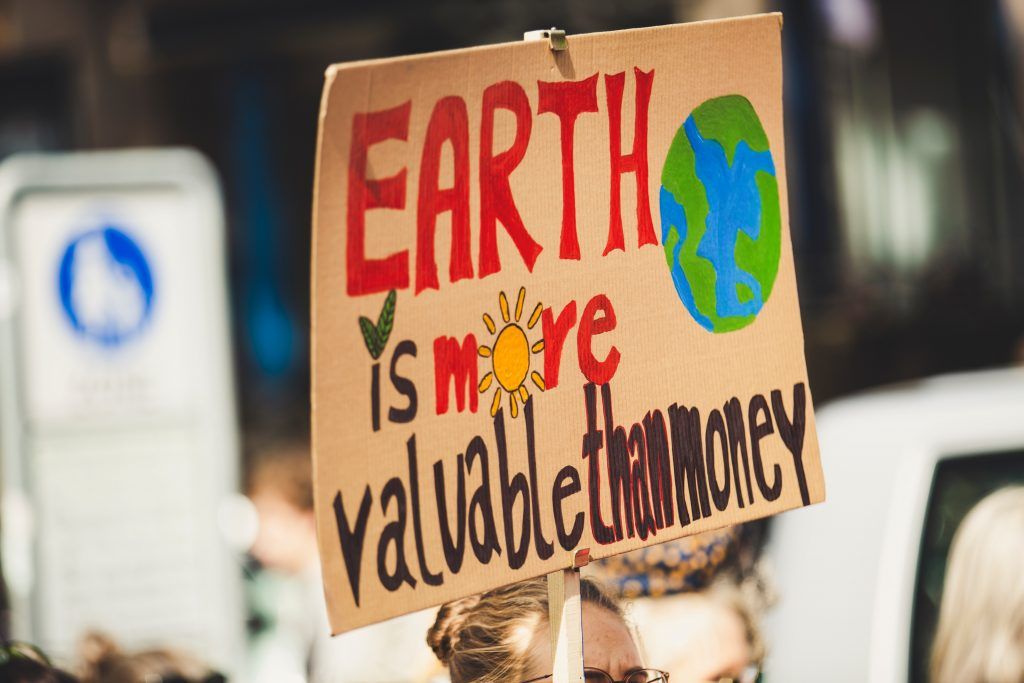
31 Oct The world of work is no longer as we thought it was.
The world of work that we have inherited from the industrial era has become obsolete . It had its origin and was designed and conceived with tools, behaviours and working systems from that particular historical context. The reality that we have known and lived for decades has little or nothing to do with the new generations that are joining it. This is something that many of us who dedicate ourselves to the management of the Human Capital (formerly called Human Resources) face as a valuable challenge to change the perspective of organizations. And therefore, in this post we want to talk about this new world of work based on the ideas that Adam Henderson, a reference in the field of employee experience , shared in his talk TEDx Rethinking work for the modern world and adding reflections of our own harvest.
evolution and new vision of employee experienc
First, the time-for-money transactional model is rapidly lagging behind. In the new world of work, professionals don’t just want money for their work; they like to know that the fruit of their effort results in a superior social good. Our habits and ways of buying as consumers, our way of relating to the closest circles, our way of understanding social responsibility, is evolving to new needs and ways that have no way back.
“Today’s professional doesn’t just want money for his work; he likes to know that the fruit of his effort results in a higher social good.”
Elias Maiztegui
As a species we have evolved in our way of relating. However, the speed of change in other areas and structures of our existence is not in par. Education, health system, political class, public administration … and the scope of organizations, have very different speeds of evolution, with dysfunctions and lack of adaptation continuous that we can observe in our day to day. The need for evolution for better adaptation is evident.
Going deeper into the life of organizations, the reflection is clear: how we evolve and sophisticate the way we meet the needs and experiences of our customers, and taking into account that our employees buy and experience the same standards of service as our customers, why doesn’t the way we satisfy and enrich the experience of our professionals evolve in the same way ?
In my view, there are two reasons for this question. The first is that until recent times the need had not occurred. With the exception of honorable exceptions of directors, businessmen and managers who had clear that one of the secrets for business to go well is to take care of their professionals, the need was not latent and the dominant thought is that “who does not like what you have to go”, because “we are as we are. Stable economic environments and higher returns on products and services allowed this circumstance.
The second reason, is that to date no other experiences have been lived or known and professionals rarely had the opportunity to work in authentic organisations where quality of management and relationships, and true interest in people made a big difference. The dominant mentality and belief in lifelong employment has conditioned and has not allowed organisations or professionals to experience other, more satisfying, enriching and authentic forms of relationships.
Origins of the new world of work
The suffering they face in the world of work millions of professionals every day is palpable and paradoxical in a context of social history where levels of well-being and life expectancy have never been so high.
Fortunately, mentality and ways of conceiving work are evolving for the new generations that are entering the world of work, and they do not hide their frustration in certain obsolete contexts. Specifically, there are two key factors that have influenced this evolution of the new generations according to Adam Henderson, Founder of Gravitee, an English company dedicated to Employee Experience..FACTOR 1: Economic crisis
The first is the impact of the economic crisis that began in 2008 and subsequent years, and in which you could see how thousands of people who had given their lives for their organizations were fired. Generational learning was clear: Loyalty in the business world no longer means anything. The psychological contract and lifetime guarantees had remained as symbols of other times.
Trust in the financial sector, large corporations and their social responsibility towards a more degraded planet, and ethically reprehensible business practices have undermined trust in the world of organizations, evolving the way we understand and live the working relationship
“Business is still the way we solve each other’s problems.”
Adam Henderson
In addition, new generations are beginning to rethink the way in which they consume , as well as the inherited concepts of success and failure, based fundamentally on the possession and accumulation of material goods, to move on to evaluate and pursue experiences such as travel and the generation of “pay per use”, servicing or sale via Wallapop.
FACTOR 2: Internet access
On the other hand, access to the Internet has changed the way of conceiving the life and world of this generation. No previous generation has ever had such easy access to knowledge at a click of a distance . The possibility of connecting with millions of people in the world in real time, with the option of being informed directly about what is happening anywhere on the planet, has made the conception of the world is different.
The new forms of authority and the questioning of the way of doing things, mean that intergenerational conflicts have been strengthened among human beings who share space in organizations when they are living in different mental worlds . We cannot abstract from the fact that each generation carries with it a different mental programming depending on the technology and the circumstances in which it has been raised.
“Access to knowledge is conditioned only by oneself.”
Adam Henderson
Por otro lado, un nuevo tipo de organizaciones ha emergido con fuerza al hilo de las nuevas tecnologías que posibilita Internet, facilitando nuevas maneras de relacionarnos, estando acorde con los nuevos tiempos. Las nuevas generaciones empiezan a generar su propias empresas (start up, etc.). Estos factores han posibilitado que los millennials, poco o nada alineados con las organizaciones tradicionales, busquen proyectos en los que sentirse plenos y realizados.
“For the first time in history, the balance between employees and employers has begun to level out differently.”
Elias Maiztegui
Where do MILLENNIALS want to work?
El éxodo del talento millennial hacia las nuevas organizaciones hace que las empresas tradicionales empiecen a tener problemas para sacar sus proyectos adelante, y empiezan a ver peligrar unas sucesiones de garantías. Saben que necesitan adaptarse al nuevo mundo laboral, pero no entienden su lógica.
There are 6 key differences between traditional companies and emerging organizations that attract the youngest talent and should be considered:
1. Work with purpose and meaning

A true purpose and sense of belonging to the work and mission of the organization (beyond corporate propaganda lacking credibility). A sense of belonging consistent with ways of working and relating.
2. Professional development and growth

Traditional models of annual review are simply absurd in a changing context like the one we live in. Passing the filters of the authorization systems are slow and do not exactly generate confidence.
Emerging organisations promote professional development and give the freedom and responsibility for the professional to constantly develop and challenge the company . The message is: “We will help you in whatever you think is appropriate for you”. Volunteers are encouraged to work on volunteer issues and on all types of activities that are positive for the development of different competencies.
3. horizontal systems

Traditional hierarchical systems are becoming obsolete . The model through which some think and others perform is no longer effective. Coupled with the throne games established in the organizational pyramids, the policy generates inefficiencies and wastes energy.
Self-managed teams and new forms of collaboration are successfully replacing the way organisations adapt more quickly to customer demands. The leadership of those who know the most about a topic and their authority and power on the ground are the ones who have to guide concrete projects.
For these ways of managing to persevere, they need at least two powerful levers of change for which traditional organisations are rarely prepared: the reinvention of egos and the construction of new identities of the owners of the dominant status quo, as well as the revision of salary systems for the true level of contribution and contribution, generating bonus systems for group and team results.
4. The value of time

The traditional thieves of time, say bosses, emails and meetings, in addition to making professionals end up doing their work outside it, begin to be replaced in emerging organizations by standing meetings, or meetings on foot, and limited to durations of no more than 30 minutes. The idea is to make it easier for professionals to do their work within the company, and to give them time to do what they are most passionate about and what they are very good at.
Emerging organizations allow those applications to be used as work tools that workers of traditional organizations use in their private sphere and that they are prohibited from using in their professional sphere. In short, they allow workers to do what they have to do so that their work is done properly.
5. Social and environmental awareness

Emerging organizations want to be responsible to their environment and not perpetuate environments of exploitation tending to infinity. The profitability of the business cannot be to the detriment of the planet or its inhabitants.
It’s not just about trading time for money anymore. It is a question of our effort reverting in a positive way in the society in which we live, and in short, in a better world. <strong>It’s about doing business with soul.</strong>
6. Flexibility

Organizational flexibility as an evolutionary medium. The industrial paradigm of presence in the workplace is broken. The effective time of work, pillar of our labor relations, is buried.
It’s not a question of technology, it’s a question of trust . Today we have more means to be more productive working from home than in the workplace itself. It’s about doing the best possible job wherever it’s done.
Rethinking work for the modern world
To complement this post, I recommend you this TEDx talk by Adam Henderson, a true reference in terms of employee experience refers.
And after this reflection on the changes we are experiencing in the new world of work, the time has come for you to rethink the approach of your organization or company. The question is: How are you going to adapt your organization? From EMCK we are ready to help you. You only have to contact us .




No Comments